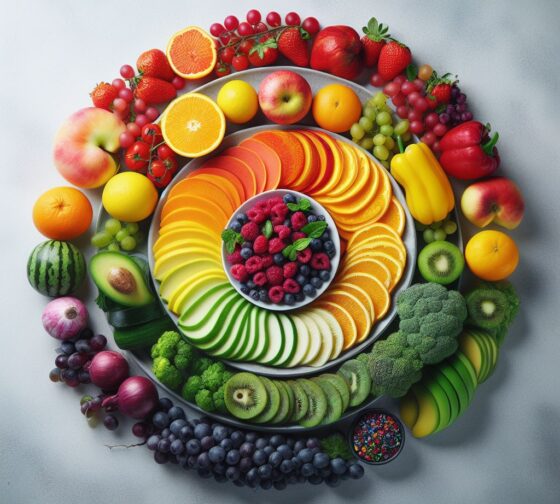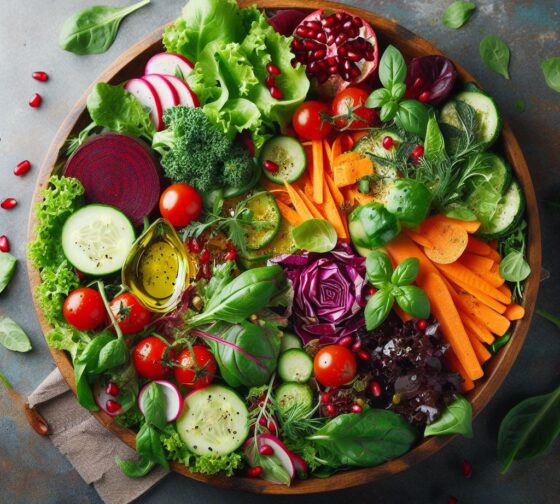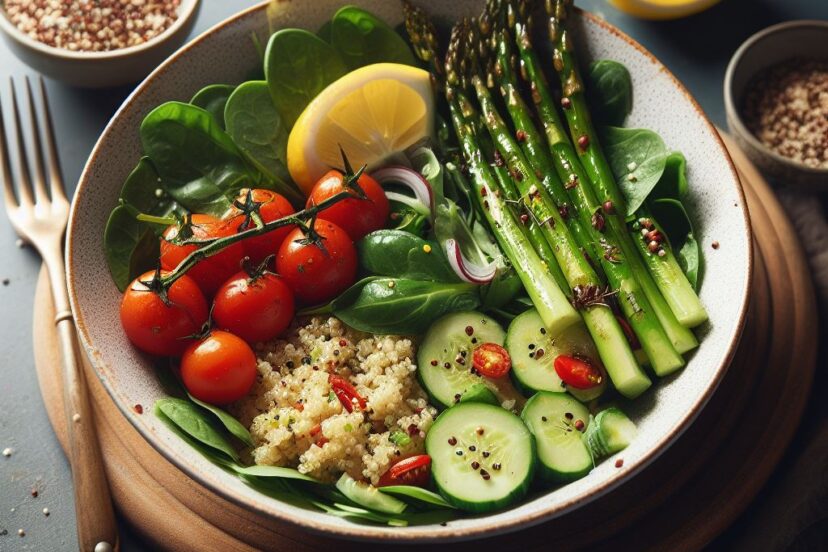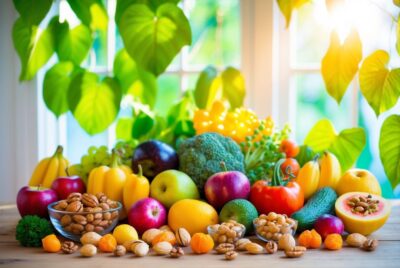Alkaline Vegan Diet: The Ultimate Guide
*We may earn a commission for purchases made using our links. Please see our disclosure to learn more.
Alkaline Vegan Diet: The Ultimate Guide
Embarking on an alkaline vegan diet journey has been a transformational chapter in my wellness story. As an enthusiast and an informal advisor to friends and readers alike, I’m here to share a comprehensive guide on embracing this wholesome lifestyle. So if you’re curious or ready for a change, let’s dive in and explore the vibrant world of alkaline veganism together.
What is an Alkaline Diet?
At its core, an alkaline diet is about keeping the body’s pH levels balanced, leaning towards alkaline rather than acidic. The pH scale measures how acidic or alkaline a substance is, on a scale of 0 to 14. Anything below 7 is acidic, and above 7 is alkaline. Our body thrives when it’s slightly alkaline, at a pH of around 7.4.
Understanding pH Balance
Why fuss over pH? Well, studies suggest that an acidic environment within the body can lead to various health issues, while an alkaline environment may support better health. When we talk about an alkaline diet, we’re referring to choosing foods that contribute to maintaining this delicate internal balance.
Basics of Veganism
Switching gears to veganism—it’s a compassionate choice as much as it is a healthy one. A vegan diet includes fruits, vegetables, legumes, grains, nuts, and seeds while excluding all animal-derived ingredients. It’s a sustainable diet choice with a low environmental footprint.
Combining Alkaline and Vegan
An alkaline vegan diet is, simply put, the best of both worlds. It combines the heart-healthy, plant-powered goodness of veganism with the pH-balancing principles of an alkaline diet. It’s a power combo for those looking to amplify their health and protect the planet.
Benefits of an Alkaline Vegan Diet

- Improved Digestion: Acidic foods can disrupt digestion and cause discomfort. In contrast, alkaline foods like leafy greens and ripe fruits are easier on the stomach and can improve digestive health.
- Enhanced Energy Levels: An alkaline vegan diet is rich in nutrients that boost mitochondrial health—the powerhouses of our cells—thus improving energy levels.
- Detoxification: High in antioxidants and vital nutrients, this diet supports the body’s natural detoxification processes, helping to cleanse your system of toxins.
- Weight Management: An abundance of fiber from plant-based foods, coupled with a metabolism working optimally in an alkaline environment, supports weight management.
- Prevention of Diseases: Alkaline diets may lower inflammation and reduce the risk of diseases like hypertension, arthritis, and even cancer.
Alkaline Vegan Diet: Getting Started
Starting out can be daunting, but with the right knowledge, it’s totally achievable. Here’s how you can make the switch smoothly.
What to Eat
Embrace a variety of fruits and vegetables, aiming for fresh, organic, and raw whenever possible. Alkaline food stars include kale, cucumber, broccoli, avocado, bell peppers, and spinach.
What to Avoid
Steer clear of processed foods, dairy, meat, poultry, fish, and high-gluten products. These can tip your pH scale towards acidic.
Meal Planning and Preparation
Plan your meals to include a rich array of permitted foods. Batch cooking and prepping can save time and reduce the temptation to stray from your diet.
Alkaline Vegan Diet: Recipes
Kickstart your meal planning with these simple recipes:
Alkaline Green Smoothie
- 1 cup almond milk
- 1 ripe banana
- 1 handful of spinach
- 1/2 cup frozen mango
- A tablespoon of chia seeds Blend until smooth and enjoy!
Quinoa and Avocado Salad
- 1 cup cooked quinoa
- Diced tomatoes, cucumbers, and red onion
- Sliced avocado
- A handful of chopped parsley
- Lemon juice, olive oil, salt, and pepper for dressing Mix and savor the freshness!
Alkaline Vegetable Stir-Fry with Quinoa
- 1 cup quinoa
- 2 cups water or vegetable broth (for cooking quinoa)
- 2 tbsp coconut oil
- 1 cup broccoli florets
- 1 cup sliced mushrooms
- 1 medium zucchini, sliced
- 1 bell pepper, any color, sliced into strips
- 2 cloves garlic, minced
- 2 tbsp low-sodium soy sauce or coconut aminos
- 1 tsp ground ginger
- Sesame seeds (for garnish)
Alkaline Vegan Diet: Lifestyle Changes

Adopting an alkaline vegan diet isn’t just about changing what you eat—it’s a lifestyle overhaul. Consider incorporating mindful practices like yoga and meditation to complement your dietary choices.
Exercising and Alkaline Veganism
Exercise is pivotal in an alkaline vegan lifestyle. It helps in maintaining alkalinity by reducing stress and bolstering your body’s natural functions.
Mindset and Commitment
Keep a journal of your progress, set achievable goals, and be patient with yourself as you adapt to these new habits.
Challenges and Solutions
One of the biggest challenges is the initial phase of adjustment. Combat this by educating yourself, finding a community for support, and experimenting with new, exciting recipes.
Alkaline Vegan Diet: Conclusion
As we close the book on this guide, remember that adopting an alkaline vegan diet is about nourishing your body with the best nature has to offer. It’s a path toward healing, energy, and balance. Embrace the change, experiment with flavors, and enjoy the journey to a revitalized you.
FAQs
- Q: Is it hard to get enough protein on an alkaline vegan diet? A: Not at all! Foods like quinoa, legumes, and almonds are great sources of protein.
- Q: How can I ensure I’m getting a balanced diet? A: Diversify your intake with a range of vegetables, fruits, nuts, and seeds. Consider using a food diary app to track your nutrients.
- Q: Will I need to supplement my diet? A: You may need to supplement with vitamin B12, vitamin D, and long-chain omega-3s, which are nutrients commonly challenging to obtain from a vegan diet alone.
- Q: Can an alkaline diet improve skin health? A: Yes, many people report improved skin health due to the diet’s emphasis on hydration and nutrient-rich foods.
- Q: Is there scientific evidence to support the benefits of an alkaline diet? A: Research on the alkaline diet is still emerging, but some studies have linked it to improved health markers and disease prevention. It’s always best to consult with a healthcare provider for personalized advice.
By now, you should have a better understanding of what an alkaline vegan diet is and how to start one. Use this guide as your roadmap, and remember, the key to success is consistency and willingness to embrace new experiences. Happy eating and healthy living!




